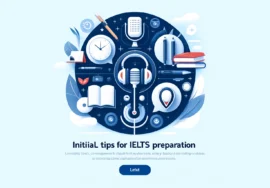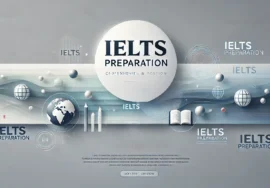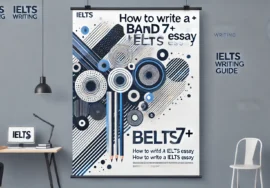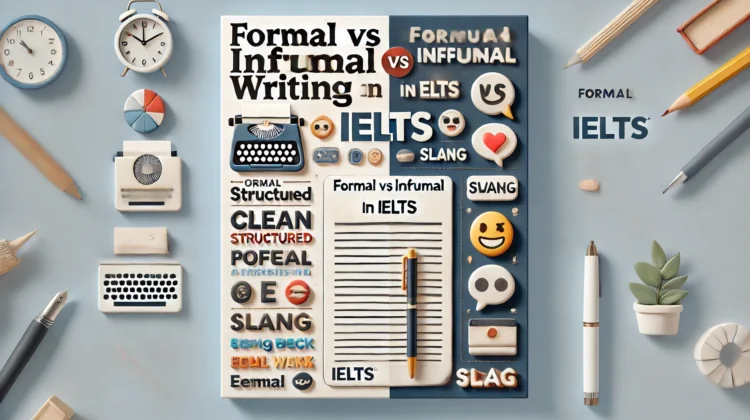
Formal vs Informal Writing in IELTS: Why You Need to Ditch the Slang and Suit Up!
Introduction: The Role of Writing Style in IELTS
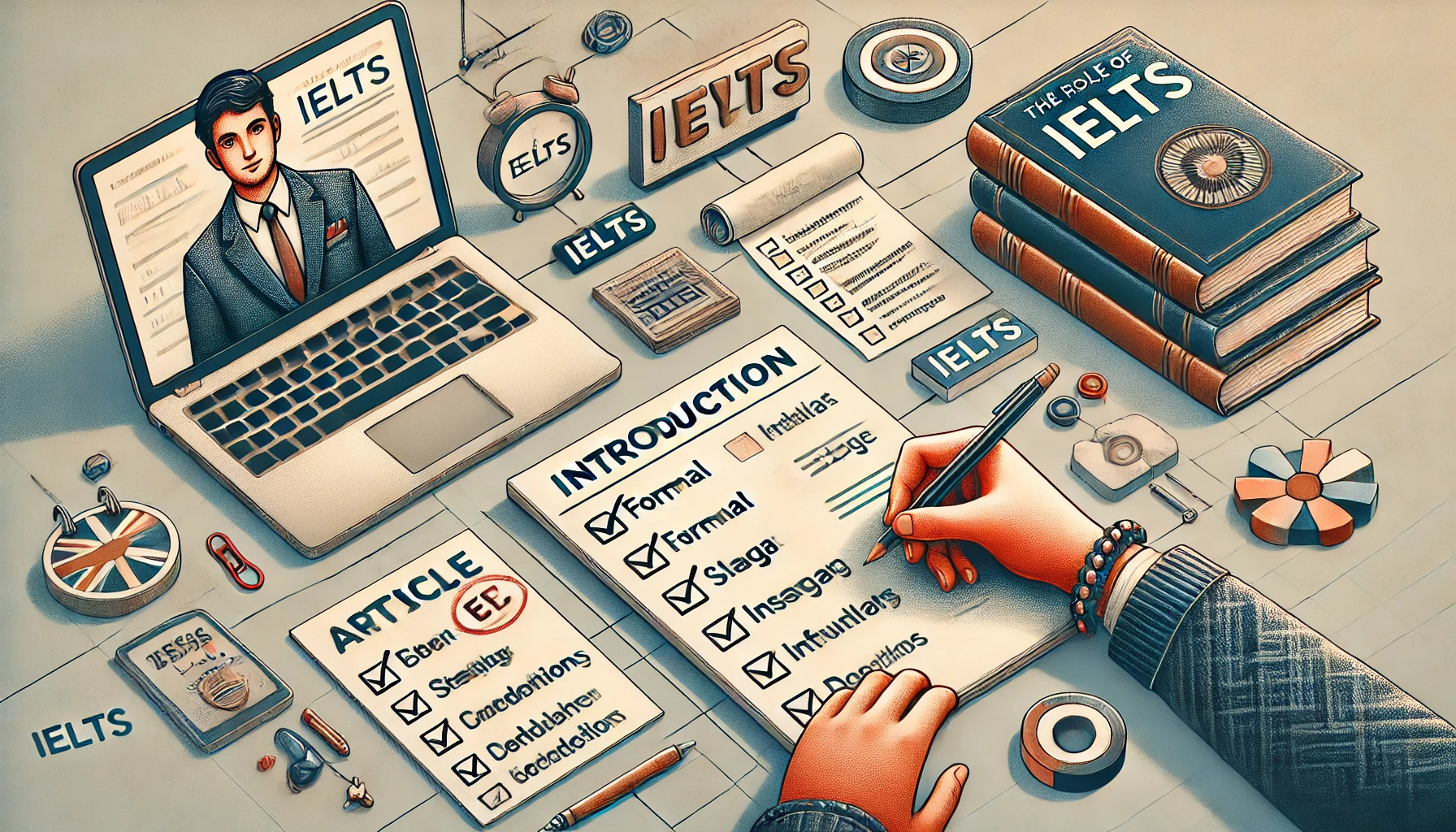
The IELTS Writing Test is not just about what you write but how you write it. One of the key skills examiners look for is your ability to differentiate between formal and informal writing styles, depending on the task. Using the wrong tone or vocabulary can significantly impact your score, especially in Writing Task 2, which typically requires a formal approach. In this article, we’ll explore the differences between formal and informal writing in IELTS, why formal tone is essential, and how you can master it for success.
-
-
Understanding the Difference Between Formal and Informal Writing in IELTS
A key factor in excelling in the IELTS Writing Test is mastering the difference between formal writing and informal writing. The choice between the two depends on the task type, with Task 1 sometimes requiring informal tone (e.g., writing a letter to a friend) and Task 2 mandating a formal and academic approach. Understanding these differences can significantly enhance your band score in the IELTS Writing module. Below, we break down the key elements distinguishing formal and informal writing, along with practical examples.
1. Tone and Purpose in Writing
The tone of your writing reflects the level of respect, seriousness, and professionalism in your content.
- Formal Tone:
Used in essays, reports, or professional letters. It avoids personal feelings or overly casual expressions and focuses on delivering arguments or information objectively.- Example (Formal): “The primary objective of this initiative is to mitigate the impact of climate change.”
- Informal Tone:
Typically used in casual letters or communication with friends and family. It can include emotional expressions, humor, or personal anecdotes.- Example (Informal): “This new plan is a cool way to fight climate change, don’t you think?”
2. Vocabulary Choices
The type of words you use is a critical differentiator between formal and informal writing. Formal writing relies on precise and academic vocabulary, while informal writing often includes simpler words or slang.
- Formal Vocabulary:
Formal writing avoids contractions, slang, idioms, and phrasal verbs. Instead, it employs specific and sophisticated word choices.- Formal: “The analysis revealed a significant correlation between economic growth and technological advancements.”
- Informal: “The study showed that tech improvements and economic growth go hand in hand.”
- Informal Vocabulary:
Slang, casual words, and colloquial expressions are hallmarks of informal writing.- Examples: “pretty good,” “get rid of,” “kind of hard.”
Replace these with “adequate,” “eliminate,” and “challenging” in formal writing.
- Examples: “pretty good,” “get rid of,” “kind of hard.”
3. Sentence Structure and Grammar
The complexity of sentence structures differs between formal and informal writing styles.
- Formal Sentence Structure:
Uses compound and complex sentences, passive voice, and connectors like however, therefore, and moreover.- Example (Formal): “It is evident that urbanization has contributed to increased environmental degradation.”
- Informal Sentence Structure:
Features shorter sentences and may include fragments or exclamations.- Example (Informal): “City growth is messing up the environment big time!”
4. Use of Contractions
Contractions like don’t, can’t, or it’s are common in informal writing but should be avoided in formal writing.
- Formal: “It is essential to analyze the data thoroughly.”
- Informal: “It’s important to check the numbers.”
5. Pronouns and Personal Language
- Formal Writing: Avoids overusing personal pronouns like “I,” “you,” or “we,” especially in Task 2 essays. Instead, it focuses on third-person perspectives.
- Example: “Research indicates that exercise improves mental health.”
- Informal Writing: Can use personal pronouns and direct addresses.
- Example: “I think exercising is good for you!”
6. Punctuation and Abbreviations
- Formal: Uses full forms and avoids excessive punctuation.
- Example: “The United States of America faces challenges in healthcare accessibility.”
- Informal: May use abbreviations, emojis, and excessive punctuation.
- Example: “The USA’s healthcare system is kinda messy, right?!”
Why This Matters in IELTS
Using the right style in the IELTS Writing Test demonstrates your ability to adapt to context and communicate effectively. Formal writing is expected in Task 2 and in semi-formal letters in Task 1 when writing to unfamiliar individuals. Misusing informal expressions or tone can result in a lower score in the Task Achievement and Lexical Resource criteria.
By mastering the differences between formal and informal writing, you can align your tone with the task requirements and improve your chances of achieving a high IELTS band score. Let’s explore some tips for enhancing your formal writing skills in the next section.
- Formal Tone:
-
-
Why Formal Writing Matters in IELTS
Formal writing is not just a preference in the IELTS Writing Test—it’s a requirement for achieving a high band score, particularly in Task 2, which evaluates your ability to present arguments or discuss ideas in a structured and academic manner. Here’s why formal writing plays a crucial role in your success:
1. Aligns with Academic Standards
The IELTS Writing Test is designed to assess your readiness for academic or professional environments where formal communication is the norm. Examiners expect you to use an appropriate tone, precise vocabulary, and well-structured arguments that reflect academic writing conventions.
- Example: Instead of saying “Kids today spend way too much time on phones,” a formal approach would be: “Children today allocate an excessive amount of time to mobile device usage.”
Writing formally ensures that your content aligns with the high standards expected in universities, workplaces, and other professional settings.
2. Demonstrates Professionalism and Seriousness
Using formal language reflects your professionalism and shows the examiner that you take the task seriously. Informal or conversational tones can make your writing appear casual, reducing its impact and credibility.
- Example of Professionalism: “The implementation of strict environmental policies is imperative to mitigate the effects of climate change.”
This conveys a much stronger sense of professionalism compared to: “We really need better rules to stop climate change.”
3. Enhances Clarity and Precision
Formal writing avoids ambiguous or overly simplified language, ensuring that your ideas are conveyed clearly and precisely. This is particularly important in IELTS Task 2, where you are evaluated on your ability to communicate complex ideas effectively.
- Example: Instead of “Lots of people think technology is good,” write: “A significant portion of the population views technological advancements as beneficial to society.”
Such precise phrasing makes your argument stronger and more convincing to the examiner.
4. Boosts Lexical Resource Score
A key scoring criterion in IELTS Writing is Lexical Resource, which evaluates your vocabulary range and accuracy. Formal writing provides an opportunity to showcase your knowledge of advanced vocabulary, academic phrases, and collocations. Using inappropriate or informal words can lower your score.
- Informal: “Pollution is getting worse.”
- Formal: “Environmental pollution is worsening at an alarming rate.”
The use of specific and contextually appropriate words can significantly enhance your score in this category.
5. Supports Coherence and Cohesion
Formal writing emphasizes logical progression and structured arguments, which are essential for scoring well in Coherence and Cohesion. Linking phrases like “therefore,” “however,” and “in contrast” are common in formal writing and help connect your ideas smoothly.
- Example of Coherence:
- Informal: “People love social media. But it has problems, too.”
- Formal: “While social media platforms are widely popular, they also pose significant challenges.”
This structured approach demonstrates your ability to write clearly and logically, which is a key expectation in the IELTS Writing Test.
6. Prepares You for Real-Life Applications
Formal writing skills are invaluable beyond the IELTS exam. Whether you’re applying to a university, seeking employment, or working in a professional environment, your ability to write formally will be essential for drafting essays, reports, or emails.
By practicing formal writing for IELTS, you’re not only preparing for the test but also equipping yourself with a skill that will serve you well in the future.
Common Mistakes to Avoid in IELTS Formal Writing
- Using Slang or Casual Expressions: Avoid phrases like “a lot of,” “kind of,” or “big problem.” Replace them with “a considerable amount,” “somewhat,” or “significant issue.”
- Overusing Personal Pronouns: While acceptable in informal letters (Task 1), personal pronouns like “I” or “you” are less appropriate in Task 2 essays.
- Contractions: Write “do not” instead of “don’t” and “it is” instead of “it’s.”
- Simplistic Vocabulary: Replace basic words like “good” or “bad” with formal equivalents like “beneficial” or “detrimental.”
Key Takeaway: Why You Need to “Suit Up”
In the IELTS Writing Test, formal writing is your key to demonstrating your academic abilities, professionalism, and mastery of English. By avoiding slang, simplifying your tone, and embracing structured arguments, you show the examiner that you can communicate effectively in contexts that demand formality. So, when preparing for IELTS, remember: ditch the casual phrases, polish your language, and suit up for success!
Common Pitfalls to Avoid in IELTS Writing
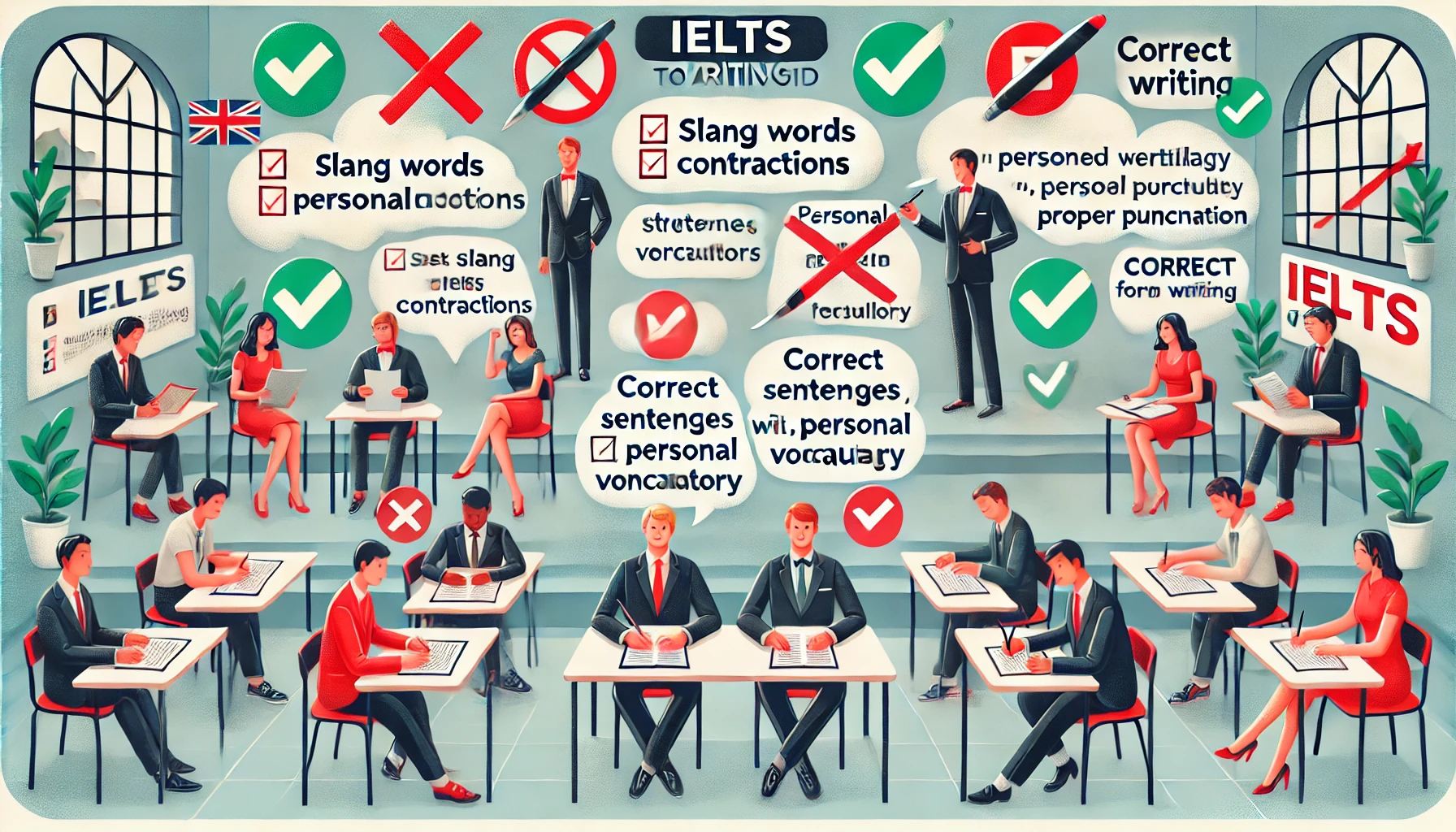
- Slang and Colloquialisms
Avoid phrases like “cool,” “awesome,” or “get rid of.” Replace them with formal equivalents like “excellent,” “impressive,” or “eliminate.” - Contractions
Write “do not” instead of “don’t” and “it is” instead of “it’s.” Formal writing does not favor shortened forms. - Personal Pronouns (in Academic Essays)
While it is acceptable to use “I” or “we” in Task 1 for informal letters, avoid overusing personal pronouns in Task 2. Focus on the issue rather than personal experiences. - Simplistic Vocabulary
Instead of “big,” use “significant” or “substantial.” Instead of “bad,” use “detrimental” or “harmful.”
Tips to Master Formal Writing in IELTS
Mastering formal writing for the IELTS Writing Test requires a combination of vocabulary development, structural understanding, and practice. Below are detailed tips that will help you refine your skills and consistently write in a formal tone, ensuring you meet the examiner’s expectations.
1. Expand Your Vocabulary with Formal Words
A strong vocabulary is the foundation of formal writing. Replace simple words with their more academic equivalents:
- Simple: big, good, bad, help
- Formal: significant, beneficial, detrimental, assist
How to practice:
- Read academic articles, opinion pieces, and reports to familiarize yourself with advanced vocabulary.
- Use tools like vocabulary-building apps or flashcards to memorize academic words.
- Create sentences with new words to ensure proper usage.
2. Practice Writing Essays in a Formal Tone
To improve, you need to write regularly and practice adapting your tone to fit the IELTS requirements. Focus on common IELTS topics like technology, education, health, and environment.
- What to do:
- Write essays on IELTS Task 2 topics, ensuring your tone is objective and professional.
- Avoid personal anecdotes unless the question specifically requires them.
3. Learn from High-Scoring Model Essays
Studying high-scoring essays is an excellent way to understand how successful candidates structure their writing, use cohesive devices, and maintain a formal tone.
- What to look for:
- Sentence structure (e.g., complex sentences).
- Formal vocabulary and academic phrases.
- Logical progression of ideas.
4. Avoid Common Pitfalls of Informal Writing
To maintain a formal tone, steer clear of the following:
- Slang and Idioms: Informal expressions like “a piece of cake” or “cool idea” are inappropriate for IELTS essays. Replace them with phrases like “easily achievable” or “an innovative concept.”
- Contractions: Always write “do not” instead of “don’t” or “it is” instead of “it’s.”
- Casual Phrasing: Avoid phrases like “kind of” or “a lot.” Use precise terms like “somewhat” or “significant.”
5. Use Complex Sentences and Grammatical Structures
Formal writing relies on a mix of simple, compound, and complex sentences to convey ideas clearly and professionally.
- Examples:
- Simple: “The government introduced new policies.”
- Complex: “The government introduced new policies to address the rising unemployment rates, which have been a significant concern in recent years.”
How to practice:
- Focus on using subordinators (e.g., although, despite, because, while) and linkers (e.g., therefore, consequently, moreover).
- Rewrite informal sentences in a more formal and structured way.
6. Develop a Logical Structure for Your Writing
A well-structured essay is a hallmark of formal writing. Use the following framework:
- Introduction: Present the topic and your thesis statement clearly. Avoid casual openings like “In today’s world” or “Nowadays.”
- Body Paragraphs: Each paragraph should discuss one main idea supported by evidence or examples. Use formal linkers like furthermore, in contrast, or in addition.
- Conclusion: Summarize your argument objectively without introducing new points.
7. Focus on Objectivity and Evidence-Based Arguments
Formal writing should avoid emotional or overly subjective language. Instead:
- Use evidence or logical reasoning to support your points.
- Avoid phrases like “I feel” or “I think” in Task 2 essays. Replace them with “It can be argued that” or “Research suggests.”
8. Edit and Review Your Work
Proofreading is crucial to eliminate informal elements or grammar errors:
- Checklist for formal writing:
- Have you avoided contractions and slang?
- Are your sentences varied in structure?
- Does each paragraph have a clear purpose?
- Have you used appropriate vocabulary?
How to practice:
- Review your work critically or ask a teacher for feedback.
- Use online grammar-checking tools to spot informal language or structural issues.
9. Incorporate Formal Expressions and Cohesive Devices
Using cohesive devices ensures that your essay flows logically and reads professionally:
- Examples of cohesive devices for formal writing:
- Adding ideas: Moreover, Furthermore, In addition
- Contrasting ideas: However, On the other hand, Despite this
- Drawing conclusions: Therefore, Consequently, As a result
Practice:
Write sample essays using these linkers to connect ideas effectively.
10. Immerse Yourself in Formal Content
Reading high-quality formal content can help you internalize the tone and style.
- Suggested materials:
- Academic journals, news articles from reputable sources, and IELTS preparation books.
- Watch academic lectures or TED Talks to pick up formal phrasing.
11. Develop Topic-Specific Knowledge
IELTS often covers common themes like technology, globalization, education, and environmental issues. Developing a deep understanding of these topics will help you present more informed and formal arguments.
- How to practice:
- Read up-to-date articles on popular IELTS topics.
- Note down relevant facts, statistics, and examples that you can use in your essays.
Summary: Mastering Formal Writing in IELTS
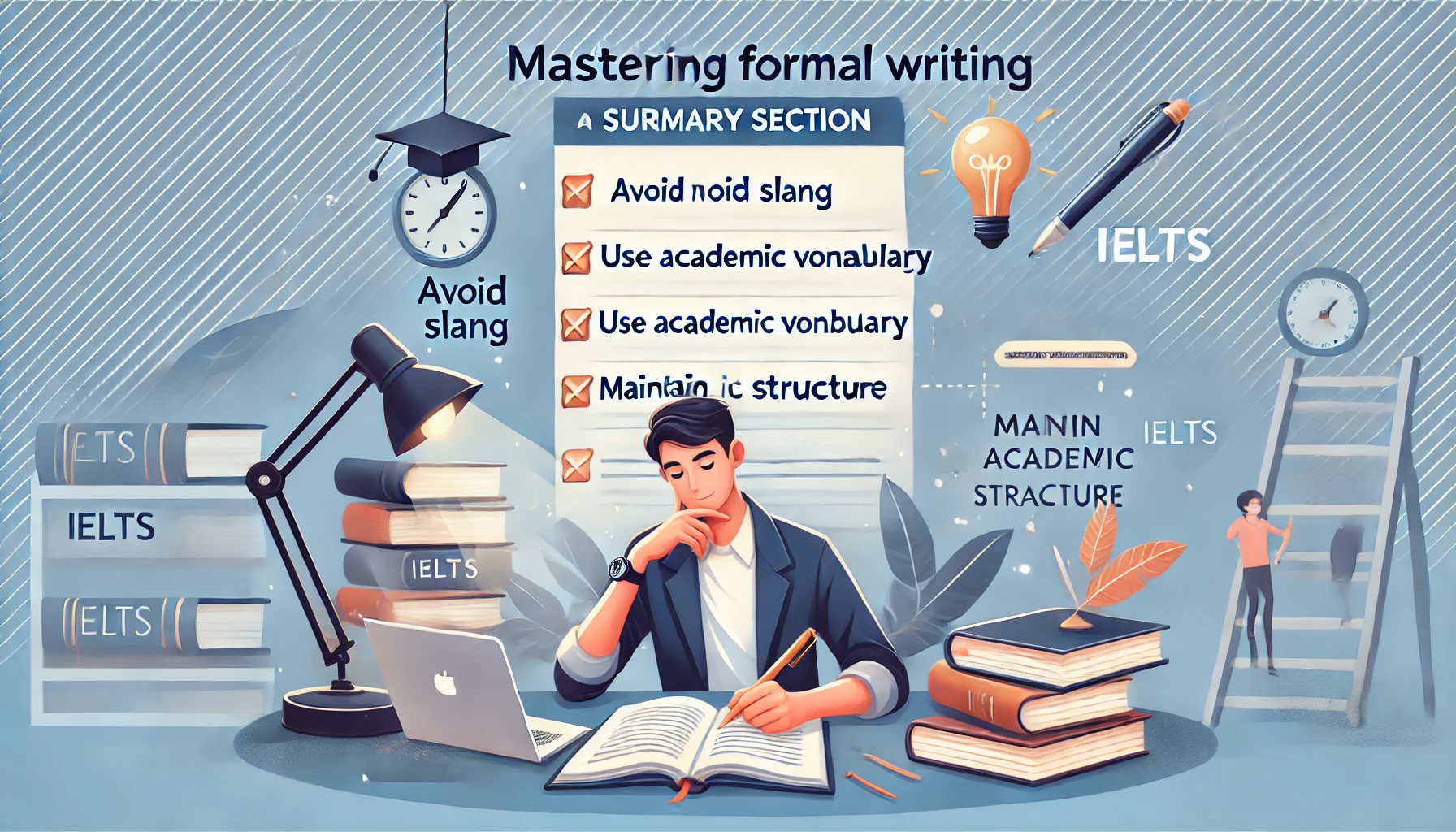
Formal writing in IELTS is an art that combines precision, professionalism, and practice. By building a robust vocabulary, mastering sentence structures, and avoiding common pitfalls of informal language, you can ensure that your writing meets the highest standards. Regular practice, critical self-assessment, and immersion in formal content will enable you to confidently tackle any IELTS writing task and achieve your desired band score.
Conclusion: Suit Up for Success
Formal writing is a critical component of the IELTS Writing Test. By avoiding slang, using precise vocabulary, and adopting a professional tone, you can demonstrate your command of the English language and secure a higher band score. Remember, IELTS writing is your chance to show that you can “suit up” and articulate your ideas like a pro. So, ditch the slang, embrace the formality, and watch your scores soar!
- “IELTS Writing: The Importance of Formal vs. Informal Tone”
This article explains the significance of adopting the right tone in IELTS Writing tasks and provides examples of formal and informal styles.
https://www.ielts.org/ - “Mastering Formal Writing for IELTS Success”
A comprehensive guide to understanding formal writing in IELTS, with tips and examples.
https://www.britishcouncil.org/ - “Formal vs Informal Writing: How to Improve Your IELTS Writing Style”
This article explores the differences between formal and informal writing and offers practical advice for IELTS candidates.
https://www.ieltsadvantage.com/ - “Top 10 Common Mistakes in IELTS Writing”
A resourceful guide to avoiding common pitfalls in IELTS writing, focusing on style and tone.
https://www.cambridgeenglish.org/ - “IELTS Writing Tips: From Informal to Academic Style”
Detailed insights into transitioning your writing style for academic and formal IELTS tasks.
https://www.ieltsliz.com/




